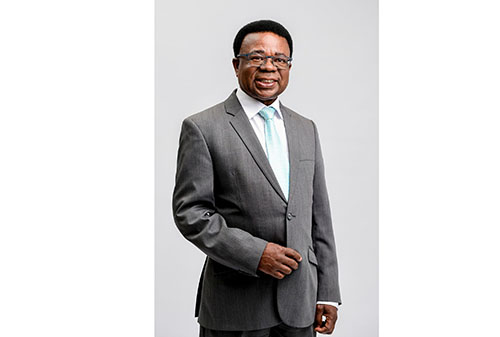The controversial pension preservation clause of the Financial Institutions and Markets Act (FIMA) is intended to strengthen the regulatory environment to protect pensioners.
This is according to David Nuyoma, outgoing CEO of the Government Institutions Pension Fund (GIPF), who this week told New Era that FIMA also addresses pension fund governance issues to ensure these retirement instruments are operated appropriately within the domestic environment.
The preservation clause as part of FIMA stipulates a pensioner must preserve 75% of a retirement fund at least until early retirement. This is done to ensure more income is available to sustain pensioners after they retire or their dependents in the event of their death.
During his exit interview with New Era, Nuyoma noted that FIMA has come a long way, adding it is a massive Act that addresses numerous financial industry regulations, including insurance. The GIPF CEO further noted that FIMA was formulated to address financial services governance aspects, including fiduciary responsibilities.
Said Nuyoma: “The matter that has attracted significant attention is the preservation clause, which is a small part of the overall FIMA equation. The minister was wise to hold it back for further deliberation”.
He emphasised the overall aim of FIMA is to provide a better tomorrow for pensioners, but hastened to say that what matters is how the new regulations are implemented through FIMA.
“One has to look at it from various angles. For now, the question is; yes, I want to eat – but in the long run, is it a good thing? That is the big question one has to ask – and the jury is still out on that issue,” said Nuyoma. The seasoned CEO, who has been at the helm of GIPF for a decade, added that “strictly speaking” for pension purposes, withdrawals should ideally be minimised.
“Even on my pension, when I was moving from one job to the other, I wish I didn’t touch my pension. So, that is just my honest view, but we all have different circumstances,” he admitted.
Earlier this year, New Era reported how chairperson of the Parliamentary Standing Committee on Economics and Public Administration Natangwe Ithete blasted FIMA for its stance on the preservation of retirement benefits.
“Do not conclude by saying if you give the entire nation their money, everyone will misuse it. And you rather keep it and give them their money later is wrong. Let people have their money and invest in what they want. It is wrong to say if a few misuse their money, then all are disadvantaged,” said Ithete at the time.
Meanwhile, Namibia Financial Institutions Supervisory Authority CEO Kenneth Matomola during a recent interview said FIMA is indeed relevant to Namibia, and it is not a tool to take people’s money.
“FIMA takes a wider approach of regulating and supervising by addressing prudential and market conduct issues, including governance of regulated entities,” said Matomola.
“FIMA continues to protect members’ retirement savings from their estate, bankruptcy/insolvency and creditors, while the member or their surviving dependants and/or nominees have not received these benefits. Where employers declare bankruptcy, contributions owed to retirement funds must be kept separate and paid to the retirement fund before any other money owed by such employers is paid,” the Namfisa CEO observed.


